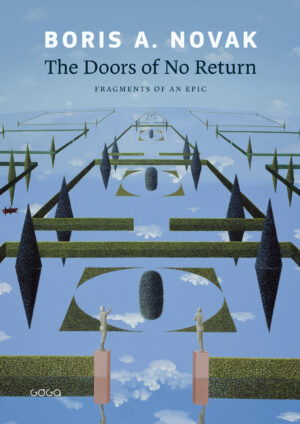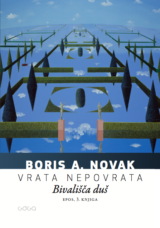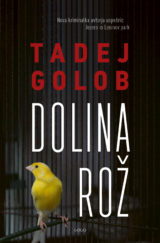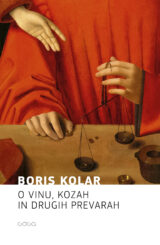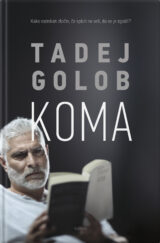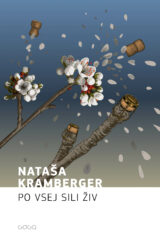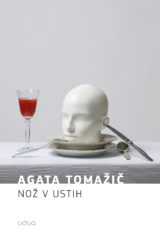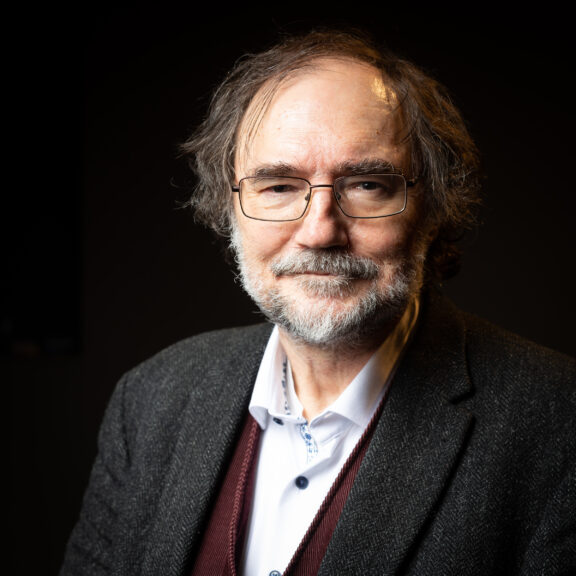The Doors of No Return
15,00 €
The Doors of No Return is a verse epic divided into three books – Maps of Nostalgia, The Time of the Fathers, and Dwelling Places of Souls, comprising 45,000 verses on 2,300 pages of the original edition. Each book is a world of its own and can be read separately, but they are connected by the same protagonists and stories, shown in three different perspectives; together they form a higher and broader totality. This edition contains selected fragments of the epic, translated by the author.
Year of publication: 2022
No. of pages: 360
ISBN: 9789612773359
About the Book
The Doors of No Return is divided into three books, outlined below.
Maps of Nostalgia
Maps of Nostalgia is an atlas of memory, a gigantic geography of the places where the poet or his ancestors have lived, that they have touched, and that they have abandoned and lost. These places of nostalgia spread from the Balkans and Central Europe to France, Australia and both Americas. Novak’s ambition with this project was to save the souls that he loved from oblivion with the power of the poetic word, and to pass their stories on to the next generation.
Using Dante’s terza rima as the basic stanza structure, the poet constantly changes rhythm and sound patterns in order to suggest the different characters of places and landscapes, historical periods and moments, living and deceased persons. The demanding and ambitious yet clear composition of the book is based on the principle of geographic taxonomy, with the three notebooks representing metaphysics, physics (geography), and travelling in between.
The Time of the Fathers
The second book of the epic covers the tragic history of the 20th century from the Austro-Hungarian Empire through Communism to the present day. It focuses on both world wars with many tragic stories, but with humor and beauty as well. As all epic poetry, Novak’s epic contains stories of battles, heroism and terrible deaths, but at the same time the poet shows history through the eyes of its victims, women, children and old people, not through a celebration of arms.
The Time of the Fathers is a history of four generations of Novak’s ancestors, relatives and many other personalities, usually identified by their actual names. A major part of the book is dedicated to the heroic partisan resistance against the Nazi and Fascist occupation of Slovenia and Yugoslavia during WWII. The Time of the Fathers ends with the period of the fall of Communism and of Yugoslavia, and with the independence of Slovenia.
The Dwelling Places of Souls
Like the first two books, the third can also be read independently of the others, but at the same time it concludes the entire epic and transfers it to a higher, metaphysical, perhaps even religious plane. It is the most unusual, original and personal of all three books, although obviously modeled after Dante’s Divina Commedia. It is the most poetical of the three books: even the narrative lines here are deeply suffused with the free grace of poetry. It irradiates a universal message about human destiny, about the destiny of artists and art, about love and mortality. The narrative frame of this book is a maritime voyage to the North; the cargo of the ship turns out to be Memory, Souls, and Stories …
The captain of the ship guides the poet deep into the underdeck where all Memory is stored, starting with mythological stories about the creation of the universe, gods and the primeval human world. Ancient myths are constantly transformed into their later historical versions: the flight of Aeneas from the burning city of Troy is transformed into the destinies of exiles over the centuries, trains to Auschwitz and the boats of today’s refugees sinking to the bottom of the Mediterranean Sea. Novak re-interprets Dante’s Inferno as History, including recent tragedies like the wars in the former Yugoslavia.
Epic Poetry Today
Novak has subtitled his huge creation “an epic”, thus opposing well-established literary historians of the epic tradition such as Lukács and Bakhtin who have claimed that the Homeric epic is dead. For Novak the epic is alive, and very much so. He believes that in our times it sounds fresh and authentic precisely because of the fact that it has had the privilege of resting for a few centuries.
Novak claims that theories of the supposed death of the epic prove only that contemporary human beings see themselves as small, miserable creatures, capable of neither great deeds nor great pain. He has tried to refute this pessimistic assessment with his huge epic in three books … although he has pointed out that writing an epic today was his great madness.
And although Novak claims that he is a 3,000-year-old poet, he shows “a certain dose of understanding and grace,” a certain wisdom of maturity, to readers. The composition of The Doors of No Return is not linear, it rather resembles a mosaic: and since today’s readers are not used any more to reading or listening to thousands of verses, the author helps them wander through this enormous labyrinth using different rhythms and paces. In Novak’s epic there is an echo of a variety of rhythms – the rhythms of children playing and soldiers marching and prisoners sentenced to death, the rhythms of horses and trains and planes and of browsing books.
“The biggest problem of epic poetry today is rhythm,” Novak has said. He tried for years to write the first versions of the epic in metrically regular verses, following the patterns available in the world’s thesaurus of poetic forms – but in vain. He soon realized that today’s feeling for rhythm could not support such regularity, “I needed elasticity, jazz variability, and a wide register of rhythmic patterns”.
(excerpts from the afterword by Janez Vrečko)
Posts
- Some Poems from The Doors of No Return – The strongest bond is not with the living, but with the dead. We are their heirs, unserious, irresponsible, playful,
running barefoot on the dewy grass. - The Translating Turn for The Doors of No Return – I have been translating my poems into English already for decades, but the effort to translate my epic The Doors of No Return has become an obsession, a madness quite similar to writing those 45,000 verses.
- Readers Anywhere Should Have No Problem at All Letting Themselves Be Drawn into the Varied World That Novak Has Created – “As a reader, I am simply in awe of what Novak has been able to create in this work. Awed by its vast scope, by thevariety yet overall cohesiveness of its many subplots, by the granularity of evocative detail presented in its countless episodes, and by how aptly all of this has been captured in one or another verse form by turns, where style and substance go together so well they seem almost effortless.”
Quotes
“I draw my epic from family tradition. As a child I used to listen to the stories of my parents and other relatives with a lot of attention and gratitude; fifty years later that child is dictating these stories to me, and all I have to do is write them down as faithfully as I can.” – Boris A. Novak
“The biggest problem of epic poetry today is rhythm. I needed elasticity, jazz variability, and a wide register of rhythmic patterns.” – Boris A. Novak
The world may be getting ever smaller, but time remains now and forever the dictator of distance.
*
The strongest bond is not with the living,
but with the dead.
*
[B]eauty is a form of dignity, our human home.
It’s how freedom fights with fate.
How life opposes its extinction.
*
Enduring beauty is the heaviest burden of my destiny …
*
I am traveling through History
and History is traveling through me.
*
The reason music exists is
because man has this thing called “soul.”
This very soul in turn exists
to remember and again make whole
lost harmonies of heaven
amid a world of drought.
*
I, an atheist, believe the soul’s eternal.
To be precise: almost eternal. Its death
is oblivion, its life is memory.
*
The soul has a garden,
in which to play and dance.
The garden has a soul.
The European Commission’s support for the production of this publication does not constitute an endorsement of the contents, which reflect the views only of the authors, and the Commission cannot be held responsible for any use which may be made of the information contained therein.

